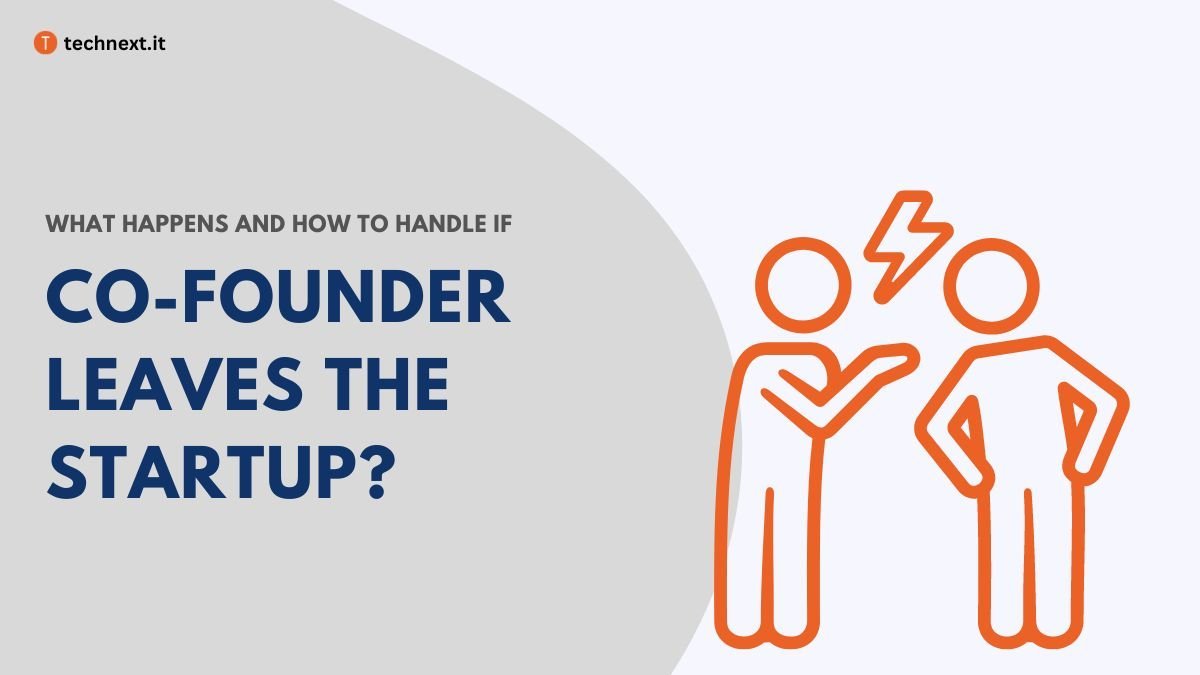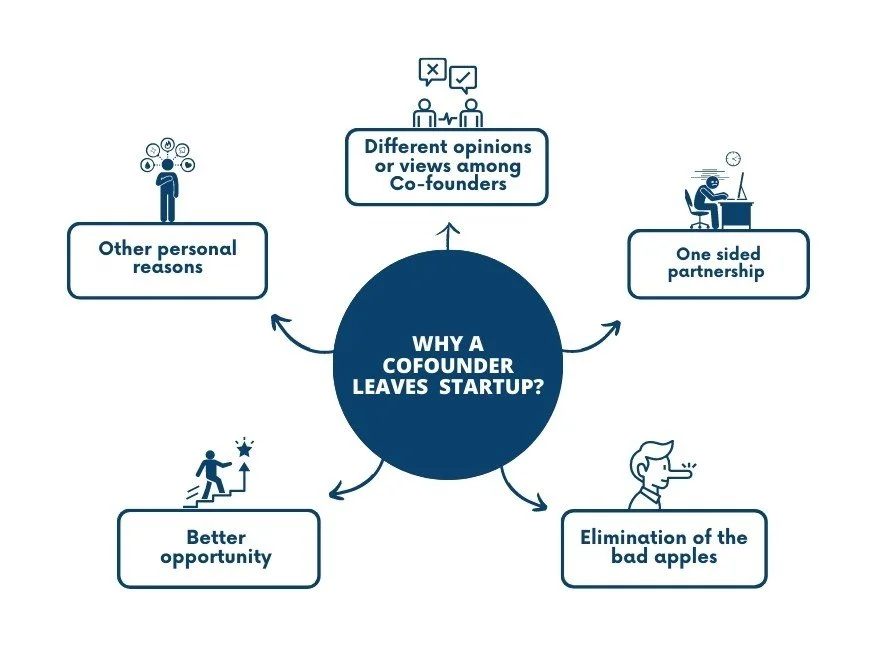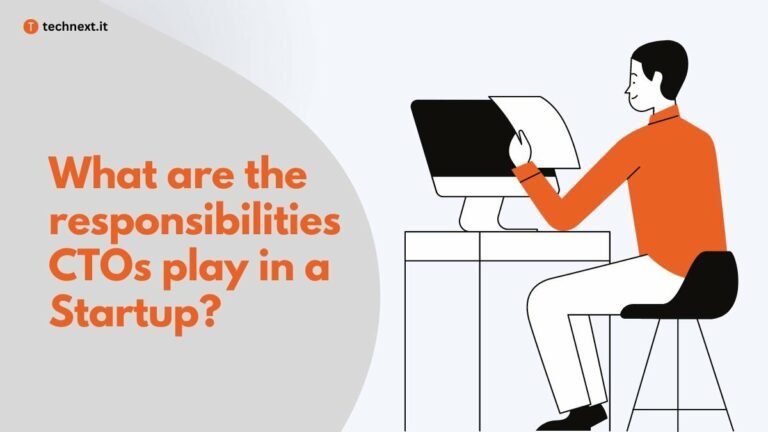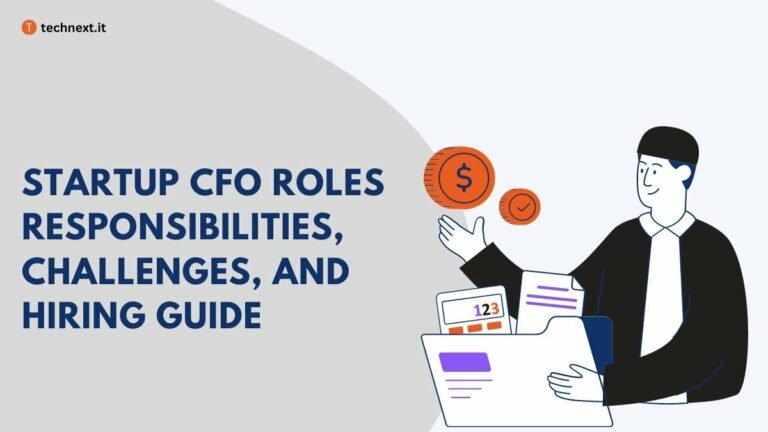What Happens When a Co-Founder Leaves a Startup + Solution
Learn why a co-founder leaves a startup, what happens next, and how you can effectively handle a co-founder’s departure.

When you have an idea and are all set to start, you might need some capable people around you who believe in the power of the group as a whole and use their passion and skill to build something amazing. These people are your co-founders, the companions of your funder’s journey.
Unfortunately, like any other human relationship, co-founders can drift apart, and this co-founder conflict can cause the downfall of the startup itself. In fact, 65% of startups fail due to co-founder conflicts.
But your startup doesn’t have to face the same fate due to cofounder conflicts if you select your partners wisely and manage their departure with precision. Let’s learn how you can do this, but first, let’s get to know the basics of co-founder dynamics.
Understanding the Co-founder Dynamics
Starting a startup is a challenging endeavor that demands a multitude of skills, unwavering dedication, and hard work. These qualities are often difficult to find in a single individual. Having one or two partners or co-founders can bring new skills to the table and alleviate some of the workloads from the original founder.
Your co-founders don’t only bring skills and points of view to the table; they also play a crucial role in the establishment and growth of your startup. There are two kinds of startup founders: those who are part of your business’s vision from the beginning and those who you invited to join in the early days based on their skill set.
Although it didn’t matter much when your co-founder started their journey, how you and your co-founders work together matters most for the success of your business. You and your co-founders should have the same long-term goals, aim, and direction for your startup.
But having complementary skills allows each of you to focus on the areas of your own strength and expertise, resulting in a productive partnership. Although you all should be open to new ideas, willing to pivot when needed, and able to adjust your roles and responsibilities as the business evolves.
To prevent disagreements and power struggles, you and your co-founders can have transparent communication and decision-making processes. Mutual trust, respect, and the willingness to resolve conflict between the co-founders are the foundation of a long-lasting, mutually beneficial working relationship.
Read More: 2×2 Matrix of choosing a co-founder
Why Cofounder Leaves Startup
Just like other relationships, breakups between co-founders can happen at any stage of your startup. The reason for the cofounder leaves company can vary for the co-founders.
From Apple co-founder Steve Wozniak’s decision to leave Apple Inc to Uber’s ousting of Travis Kalanick, the reasons are countless; we have decided to list the common reasons for this part.

Different opinions or views among Co-founders
Let’s start with different views. Over time, you and your co-founders may have different views on the company’s goals, growth progress, and market approach. Your co-founders may quit if these disagreements become irreconcilable to follow their own vision or avoid a bitter relationship. Garry Tan, the founder of Initialized Capital, talks about Co-Founder Conflict & Why in one of his videos.
While working closely together, personal dynamics such as Workstyle, decision-making, and value disagreements can break your partnership, and the co-founder may choose to exit your startup.
One sided partnership
In most cases, founders select someone as a co-founder who brings new skill sets to the table. As the startup grows, the demand for skill sets also changes. It is the responsibility of your co-founders to grow as your startup grows. When they don’t, it eventually becomes a one-sided partnership.
All of you are expected to be adaptable and take on various roles and challenges that arise along the way to provide value. If the co-founder’s skills are not scaling rapidly enough, they’ll leave.
Moreover, when one of your co-founders feels they have to shoulder more responsibilities to compensate for others, it can lead to burnout and resentment. Another cause of burnout and eventual departure from the startup is when founders struggle to trust each other.
Better opportunity
Sometimes, your co-founder may leave for various reasons like receiving better opportunities, having personal plans, losing interest in your startup, or a combination of factors.
Your co-founders may leave the company since their financial expectations don’t match reality and vice versa. When a company’s finances collapse, top executives are often dismissed.
Elimination of the bad apples
In your startup’s early stage, it’s possible for individuals to join with illegal motives to learn your trade secrets and then leave to establish their own. And just like any human being, funders often place their trust in the wrong individuals.
In the worst-case scenario, those bad apples destroy the whole basket and in the best-case scenario, the funding team is able to recognize and remove these individuals from their position as co-founders.
Other reasons
Other reasons can be a co-founder’s untimely death or health issues that can affect productivity or retirement.
What Happens When a Co-Founder Leaves a Startup?
Regardless of the reason, the departure of your co-founder is a severe event that affects your startup’s dynamics, operations, and future direction. Depending on your startup stage, the reason, and the terms of the departure, the consequence varies.
The most common consequence after the departure of your co-founder is an “Absence of Leadership” situation in your startup, which can affect the balance and unity among the remaining co-founders and team members.
Another situation is the rise of legal and equity-related issues. You may face disputes or conflicts with the co-founder over their shares, severance, IP rights, or other legal matters.
Each co-founder usually brings unique skills, expertise, and knowledge to the table. So your startup may face a gap in specific areas that the co-founder previously handled.
You need to reassess and reorganize the management structure, roles, and responsibilities and find a new co-founder or a replacement for the co-founder’s position.
Anyone involved, such as employees, board, investors, customers, and partners, can find the departure a red flag. You have to communicate with them and provide reassurance about the company’s future.
How to Handle a Co-founder’s Departure (the Solution)
Reading this far, you might be thinking the departure of a co-founder can be the end of your startup. We I said at the beginning, it doesn’t mean the end of the startup’s journey. However, it has some impacts, which can be handled as long as the relationship is ended in a fair, legal, and transparent way. Here is how to handle a corporate breakup professionally. Usually, corporate breakup goes through three stages. Each level is distinct from the others.
Stage 1: Safe – better than sorry
The 1st stage is all about preparing upfront. Before launching your startup, always have a legal contract in place. Prioritizing details that provide your peace of mind – such as shares, payback percentage, non-disclosure, vesting, notice term, specialized company knowledge usage, etc.
Add terms asking co-founders to provide notice time in order to train their successors and teach them company processes. Try to create a backup plan and use it when negotiating the terms, such as increasing their income or stakes if the co-founder decides to quit and you want them to stay.
Stage 2: During the departure
The 2nd stage is when the co-founder leaves your startup. The procedure of a co-founder leaving your startup is difficult for you and the entire company. As a founder, you must stay strong and handle different aspects of the situation with patience. There are many aspects of this phase. You have to handle every aspect carefully. In this section, I went over some of the more aspects so you’d know what to expect.
Departure or termination:
Let’s start with departure or termination; the leaving of your co-founder can be departure or termination. You have to prepare yourself differently. If it’s a peaceful departure, you and your co-founder can plan and collaborate to ensure a smooth transition.
But if it’s a termination, there are more facts to consider, such as whether your co-founder is a board member. If your co-founder isn’t a board member, you can fire them anytime with proper reason and documentation. But removing a co-founder who’s also a board member is difficult. The board of directors must agree with your decision to terminate.
Still, there is another scenario. Even if the board votes to terminate your co-founder, he or she may not willingly agree to go and may come back with demands. If you find yourself in this position, it’s best to talk to an attorney right once because a messy exit with lawsuits is the last thing you need.
Communication:
The second aspect is communication. Once you’ve determined that your co-founder will be departing the company, you must inform your team, outside investors, and board members. The departure of your co-founder could cause a lot of confusion in your company; you should make a plan to carefully tell your investors and, most importantly, your whole team about it. This will keep the chaos to a minimum and build trust, transparency, and confidence. They can also help you find a co-founder to join the company.
Equity Issue:
Your co-founder’s departure can complicate equity concerns. But if you set up your vesting schedule at the start of your startup, it will make things easier when it comes to equity. It will protect you from the “free rider” (a founder who leaves the company and benefits from its success without contributing to it) problem. It will also ensure that founders who leave early won’t get too much stock. If you want to know more about equity, you can read our article on “How to Split Equity in a Startup Fairly in 2023”
Records of Severance:
It’s smart to draft a formal severance agreement that covers both the company and your interests. You can draft and sign these agreements in your startup’s early days. You can include the terms of payment and intellectual property (IP) rights. This will keep you safe when any co-founder claims ownership over the IP and launches a rival enterprise.
You can also include monetary compensation in a severance agreement in exchange for a non-disclosure agreement.
Stock Problem:
The stock also becomes a concern for you when your co-founder leaves.
With stock buyback, you can prevent your ex-co-founder from acquiring too much power in your company. You or the venture capital firm or the board of directors make an offer to buy out the vested equity of a co-founder.
The Last Paycheck and Closer:
Although apparently insignificant, this is particularly crucial during a termination. You should include all accrued benefits in the final salary of the co-founder. He/She can file a lawsuit against the corporation if this is not done. So why take risks; you should end the business partnership in a respectful, fair, legal, and transparent manner.
Stage 3: After the departure
As I said earlier, the departure of your co-founder is an unfortunate situation, but it is not the end of your startup. That’s why even after the departure of your co-founder, the rest of you need to figure out the way to continue. You are the foundation of your startup, and your staff is looking to you for guidance, so do your best to maintain calm and find the right person who can make a significant contribution to your startup.







Lot of things to learn from your post.Check out Guidewire Certification